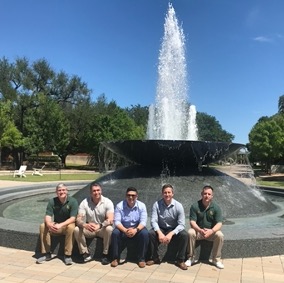Program Rationale
In January of 2007, The American College of Emergency Physicians (ACEP) issued a "Policy Statement" validating the necessity of additional training for physician assistants (PAs) in the emergency department (ED) setting. The policy states all "Physician Assistants working in ED's should have or acquire specific experience or specialty training in emergency care, should participate in a supervised orientation program, and should receive appropriate training and continuing education in providing emergency care." This is the first time that an organization external to PA professional organizations has acknowledged the necessity for advanced education of PAs.
Traditionally, entry-level training for PAs was either a bachelors or now, more commonly, a masters degree program. Individuals desiring doctoral degrees had to pursue the traditional academic route of a Doctor of Philosophy (PhD) degree, commonly available in non-clinical research. Circa 2007, PAs desiring post-professional education emphasizing clinical and research skills had limited options. The first option was to obtain a clinical PA masters degree which was not residency-based nor academically intensive. Most of the programs consisted of a distance-learning curricula without robust faculty oversight of the clinical experience. The second option was to complete a specialized clinical residency training program that issued a certificate of advanced competency. The opportunity gap of rigorous clinical and research curricula was addressed via the 2007 creation of the world’s first-ever, Doctor of Science in Physician Assistant Studies Residency Program, specializing in Emergency Medicine (DScPAS-EM). The degree is offered in recognition of an exemplary level of training currently being conducted. The introduction of the DScPAS-EM program further benefits the U.S. military by establishing the standard by which other programs can potentially emulate. The DSc degree is further used as a tool to recruit and retain qualified graduates who wish to further their education but lack a venue to meet this need. Current graduates incur a two-year active-duty service obligation (ADSO) for the 18-month DScPAS-EM program. This service obligation is in addition to the four-year ADSO incurred after completion of PA school. There is also a mandatory one-year for Army, and two-year for Air Force, PA experience requirement as a general PA prior to applying to the residency program.
This program intends to distinguish the educational progression between the entry-level masters degree and the advanced clinical training gained in the program. No other residency-based program requires individual original research and many do not have the clinical residency requirements that enhance this curriculum so richly. This program includes an expanded curriculum of eighteen months to allow for more clinical and research education and experience. This curriculum was selected by ACEP as the recommended example curriculum to develop emergency medicine training programs for DSc trained EMPAs. The emphasis on IRB-approved research and evidence-based practice, in combination with a superior clinical curriculum, truly distinguishes this program as unique.
